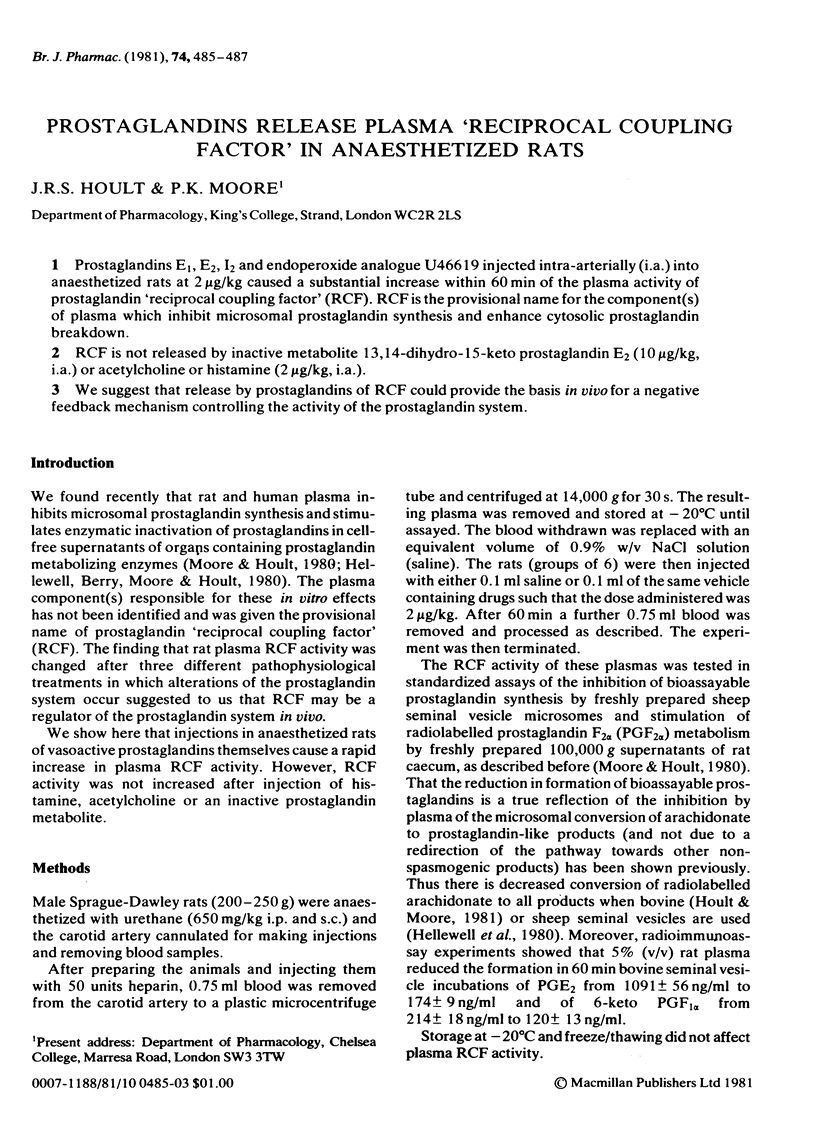Abstract
1. Prostaglandins E1, E2, I2 and endoperoxide analogue U46619 injected intra-arterially (i.a.) into anaesthetized rats at 2 micrograms/kg caused a substantial increase within 60 min of the plasma activity of prostaglandin 'reciprocal coupling factor' (RCF). RCF is the provisional name for the component(s) of plasma which inhibit microsomal prostaglandin synthesis and enhance cytosolic prostaglandin breakdown. 2. RCF is not released by inactive metabolite 13,14-dihydro-15-keto prostaglandin E2 (10 micrograms/kg, i.a.) or acetylcholine or histamine (2 micrograms/kg, i.a.). 3. We suggest that release by prostaglandins of RCF would provide the basis in vivo for a negative feedback mechanism controlling the activity of the prostaglandin system.
Full text
PDF


Selected References
These references are in PubMed. This may not be the complete list of references from this article.
- Hellewell P. G., Berry C. N., Moore P. K., Hoult J. R. Human plasma contains prostaglandin 'reciprocal coupling factor'. Eur J Pharmacol. 1980 Dec 19;68(4):509–511. doi: 10.1016/0014-2999(80)90429-x. [DOI] [PubMed] [Google Scholar]
- Malmsten C. Some biological effects of prostaglandin endoperoxide analogs. Life Sci. 1976 Jan 15;18(2):169–176. doi: 10.1016/0024-3205(76)90021-7. [DOI] [PubMed] [Google Scholar]
- Moore P. K., Hoult J. R. Pathophysiological states modify levels in rat plasma of factors which inhibit synthesis and enhance breakdown of PG. Nature. 1980 Nov 20;288(5788):271–273. doi: 10.1038/288271a0. [DOI] [PubMed] [Google Scholar]


